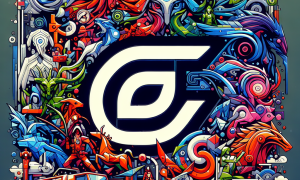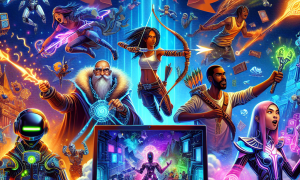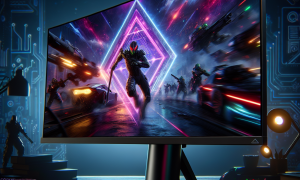Introduction
The gaming community has been in an uproar recently concerning the business practices of Paradox Interactive, particularly around their approach to downloadable content (DLC). Players have expressed frustration, accusing the renowned developer of fixing games through paid DLC rather than providing well-rounded experiences at launch. In response, Paradox has attempted to clarify their stance on this matter, emphasizing their efforts to strike a balance in how they manage game content and expansion strategies.
Understanding the DLC Debate
The debate over DLC practices is not new, but it has gained momentum with specific cases involving Paradox’s titles. Many players feel that when they purchase a game, it should include all necessary content for a complete experience. The essence of the complaint is twofold:
- Incomplete Games at Launch: Accusations arise that some games are released with the expectation that future paid DLC will amend shortcomings.
- Dependence on Paid Content: Gamers argue that important fixes or additional content that should have been part of the base game are instead locked behind a paywall.
This perception leads to feelings of betrayal among loyal players, who have invested time and money into Paradox’s titles, only to find that what they perceived as a complete gaming experience was, in reality, merely the beginning.
Paradox’s Response: Aiming for a Balanced Approach
In light of the criticisms, Paradox Interactive has openly addressed the concerns. According to the company, their intent has always been to provide lasting support and enrichment for their games, rather than merely adopting a quick-fix mentality tied to profit. They argue that developing games and subsequent DLC requires a careful balance that respects both the developer’s vision and the players’ expectations.
The Vision Behind DLC
Paradox clarifies that their DLC strategy is rooted in thoughtful design and community engagement. They believe that:
- Expanding Narrative and Mechanics: DLC offers opportunities to deepen the game experience, adding layers of storytelling, mechanics, and player agency.
- Community Engagement: The company is committed to listening to player feedback post-launch to understand how they can best enhance their games.
- Ongoing Support: Rather than fixing games through DLC, Paradox aims to build upon existing frameworks, providing players with more content and gameplay options over time.
This approach supports the notion that DLC can be a valuable addition to the gaming landscape, providing fresh content that keeps a game alive long after its initial release.
Listening to the Player Base
Understanding player feedback is crucial for Paradox. The developer has taken steps to ensure that their game expansions align with what the community desires. This commitment is reflected in their engagement strategies, including:
- Surveys and Community Forums: Actively soliciting input through surveys and discussions with players allows the team to gauge interest and prioritize development efforts.
- Feedback Implementation: They often take successful community suggestions and integrate them into DLC, reinforcing the notion that they value player input.
- Transparency in Development: By sharing development insights and roadmaps, Paradox aims to demystify the DLC process and reduce player frustrations.
Addressing the Economic Reality of Game Development
As the gaming industry evolves, the economic pressures also shift. Paradox acknowledges that the landscape of game development has grown increasingly complex and costly. In this regard, they emphasize:
- Long-Term Commitments: Game development is often a long-term investment, requiring funding and resources to continue improving games months or years after the initial release.
- Survival of Smaller Studios: For smaller studios like Paradox, ongoing revenue from DLC is vital for survival and future game development.
- Expanding Development Teams: Generating revenue through DLC helps them hire larger teams that can create richer, more polished experiences in the future.
The reality of funding ongoing projects means that developers rely on DLC sales to keep their teams intact while simultaneously ensuring the quality and depth of their games.
Balancing Expectations with Reality
So, can players expect Paradox to change its approach to DLC? The developer has indicated a desire to find a middle ground. By acknowledging player concerns and emphasizing their commitment to delivering genuinely enriching content, they hope to restore trust within the community.
However, players also need to adjust their expectations regarding DLC. While the expansions can provide significant new content:
- It may not always address every community concern.
- Some DLC may focus more on enhancing gameplay rather than fixing perceived flaws in the base game.
- Long-term improvements and adjustments will require ongoing investment from both the developer and the players.
Conclusion: Finding Middle Ground
The controversy surrounding Paradox Interactive’s DLC practices highlights ongoing tensions within the gaming community. As gamers increasingly demand transparency and value for their investments, developers face the challenge of balancing business needs with player expectations.
Paradox’s response indicates a willingness to engage with their user base and address concerns, but a broader conversation about the nature of DLC in modern gaming persists. The dialogue between developers and gamers will ultimately shape the future of DLC practices, paving the way for a more harmonious balance between profitability and player satisfaction.
In this evolving space, continued vigilance from players and a clear response from developers like Paradox are essential for fostering a gaming industry that respects its passionate community while ensuring sustainable growth.
Citation: Paradox respond to the accusation that they fix games with paid DLC – “we try to find a middle ground” written by Edwin Evans-Thirlwell









